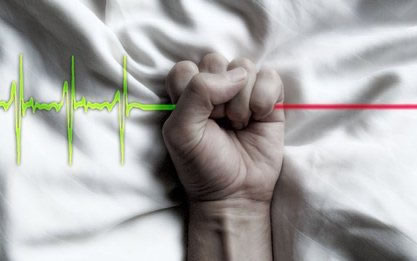To help New Zealanders understand what David Seymour’s ‘End of Life Choices Bill’ entails, and what it would mean in Practice, MAXIMINSTITUTE hosted two visiting UK experts at their recent MIC event.
Baroness Ilora Finlay is Professor of Palliative Medicine at Cardiff University. She has been President of the Medical Women’s Federation, President of the British Medical Association, President of the Royal Society of Medicine and is President of the Chartered Society for Physiotherapy. She also chaired the Association for Palliative Medicine of Great Britain and Ireland, and since 2014 has chaired the National Council for Palliative Care.
Robert Preston worked in Whitehall as a civil servant for 30 years. In that role he examined Lord Joffe’s Private Member’s Bill, “Assisted Dying for the Terminally Ill” and he is now Director of the think-tank, Living and Dying Well, which works to examine the objective evidence surrounding the controversial end-of-life debate and publishes research to help inform Parliament and the public.
Both came to be involved in the issue of assisted suicide and euthanasia through their involvement in the 2005 British Select Committee that conducted a comprehensive investigation of the practices of assisted dying around the world. Following the conclusion of that inquiry, both have continued as advocates of improved elder and palliative care, as well as working to oppose legalised assisted suicide and euthanasia.
Both presentations were highly informative, however, the Q&A segment was extremely illuminating. Below is the list of questions asked from the floor with the timestamp on the video.
- 1:25 Q: Who are you to tell someone who is in pain that they can’t do what they want? If it’s their life, shouldn’t they have the right to do what they want?
- 4:20 Q: Can palliative care really relieve all suffering? Aren’t there going to be people who still suffer even with the best care we can offer?
- 5:20 Q: How do the safeguards in David Seymour’s End of Life Choices Bill compare to the safeguards required by similar laws in The Netherlands, Oregon, Belgium etc.?
- 8:25 Q: Do you think there’s any chance your views on assisted suicide would shift if one of your own family members was ill, in agony, and wanted help to end their pain?
- 13:30 Q: Purely this is too important a question to trust to just 121 MPs in Parliament. Shouldn’t we settle the issue of euthanasia with a binding referendum so the people can decide?
- 16:00 Q: Isn’t opposition to euthanasia just driven by religious views? How do you think religion interacts or should interact with this subject?
- 16:50 Q: You talk about the Hippocratic Oath – “first do no harm.” Proponents of euthanasia have made legal arguments that suggest denying people access to legal assisted suicide means that we’re essentially forcing them to continue suffering, and in essence, doing harm to them. Also, they say that people who want to die on their own terms may choose to commit suicide before they lose capacity, effectively shortening the life they could have had if they were certain someone else could end their life for them later on. How do you respond to these arguments?
- 20:55 Q: You talk negatively about the rising numbers of people using euthanasia and assisted suicide in the Netherlands and Oregon respectively. Isn’t this just showing that legalising it is giving people options that they want? Is it necessarily a bad thing to see rising levels of euthanasia?
- 23:45 Q: It seems that a lot of this debate isn’t just about levels of pain, but it’s the idea that any level of suffering or loss of autonomy is something we should have the right to avoid. How do you address those sorts of concerns?
- 26:20 Q: In your experience in public debate around assisted suicide in the UK, what’s one argument that you have found really resonates with people?
- 30:35 Q: What about situations where someone is in agony because of their condition, but simply ceasing medical treatment won’t allow them to die? Isn’t there a case for assisted suicide then?
Looking for more articles on Euthanasia and the debate in New Zealand?
NZ Christian Network
MAXIMINSTITUTE
Hospice NZ
includes a recording of a teleconference with Baroness Finlay
Nathaniel Centre
Euthanasia-Free NZ









0 Comments